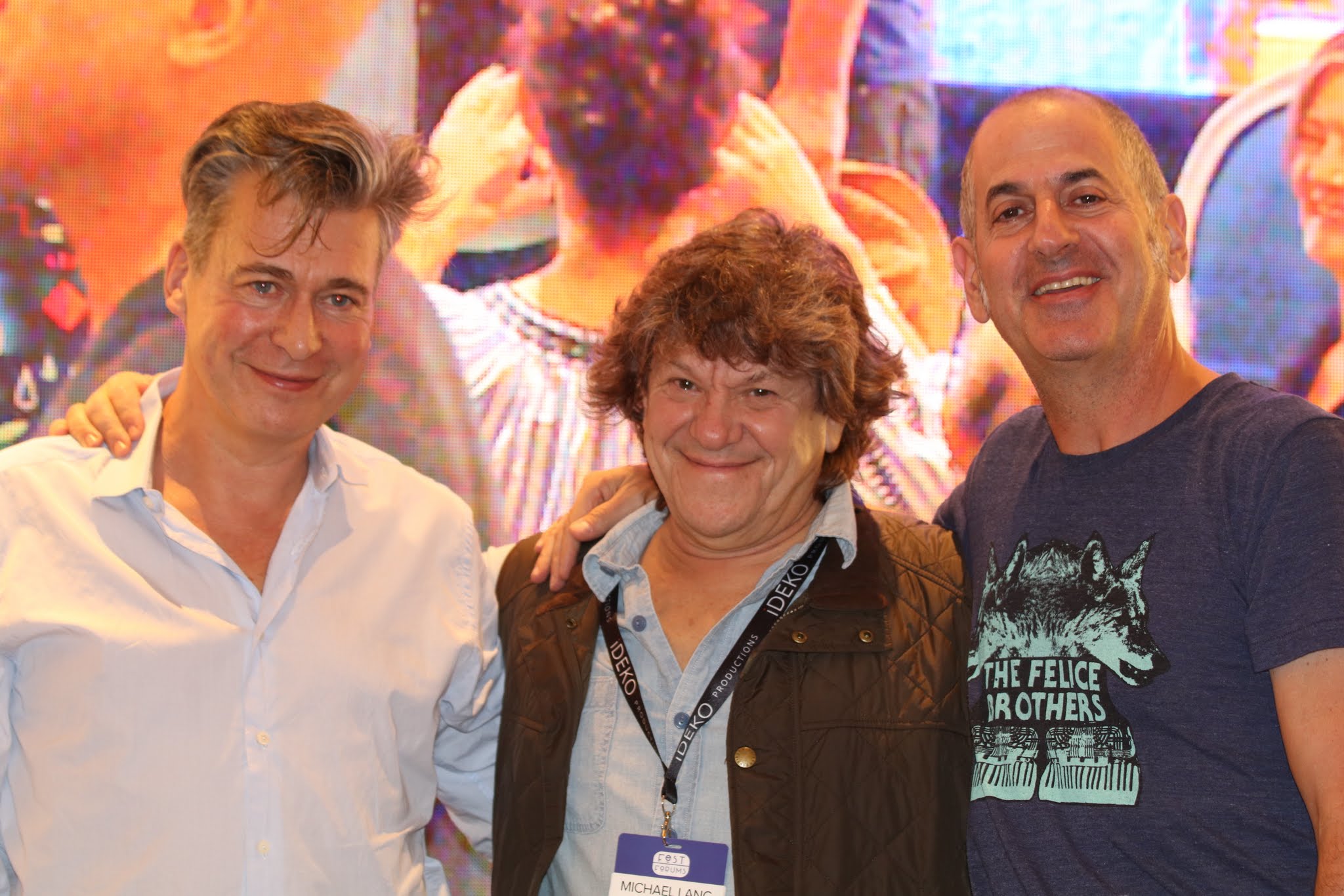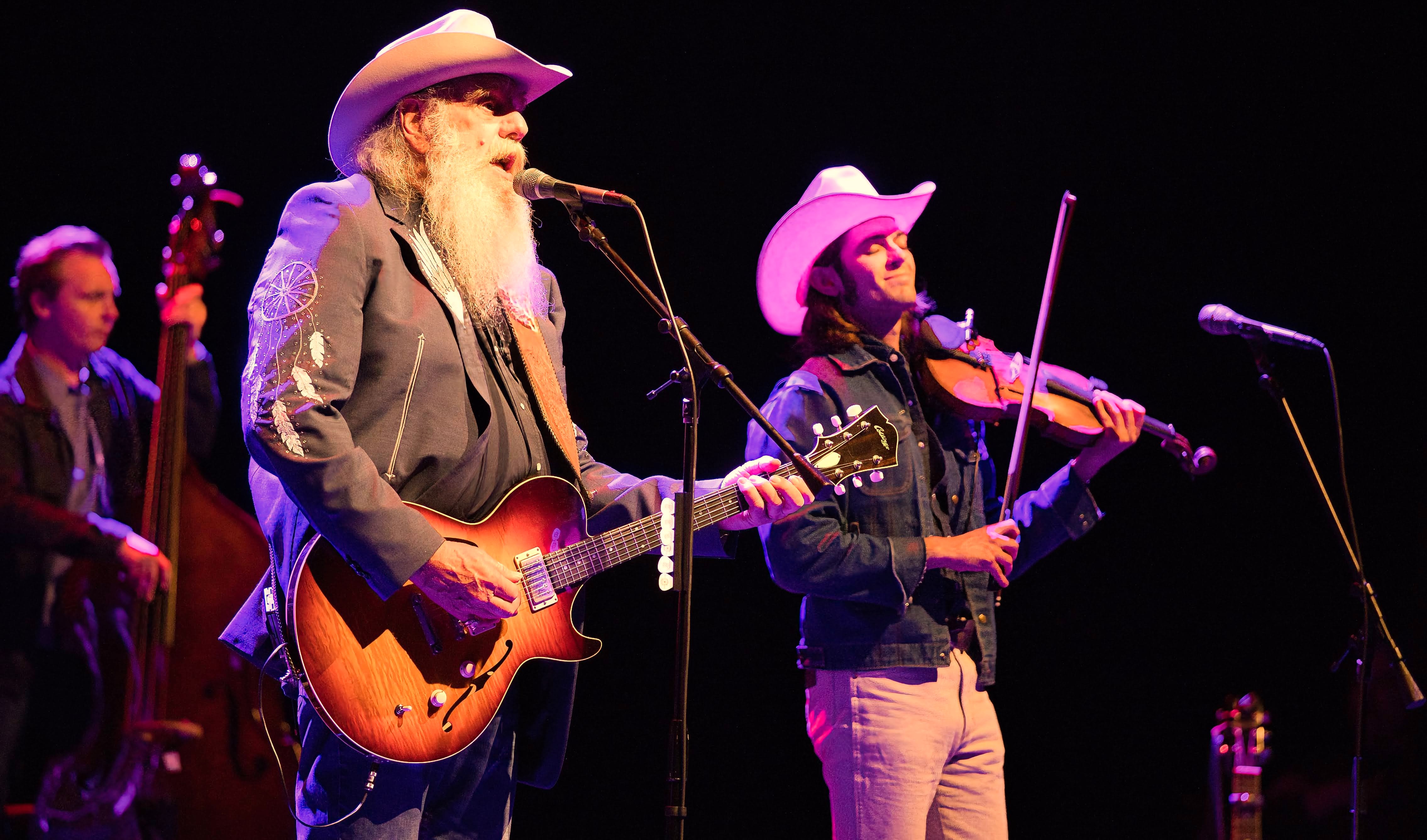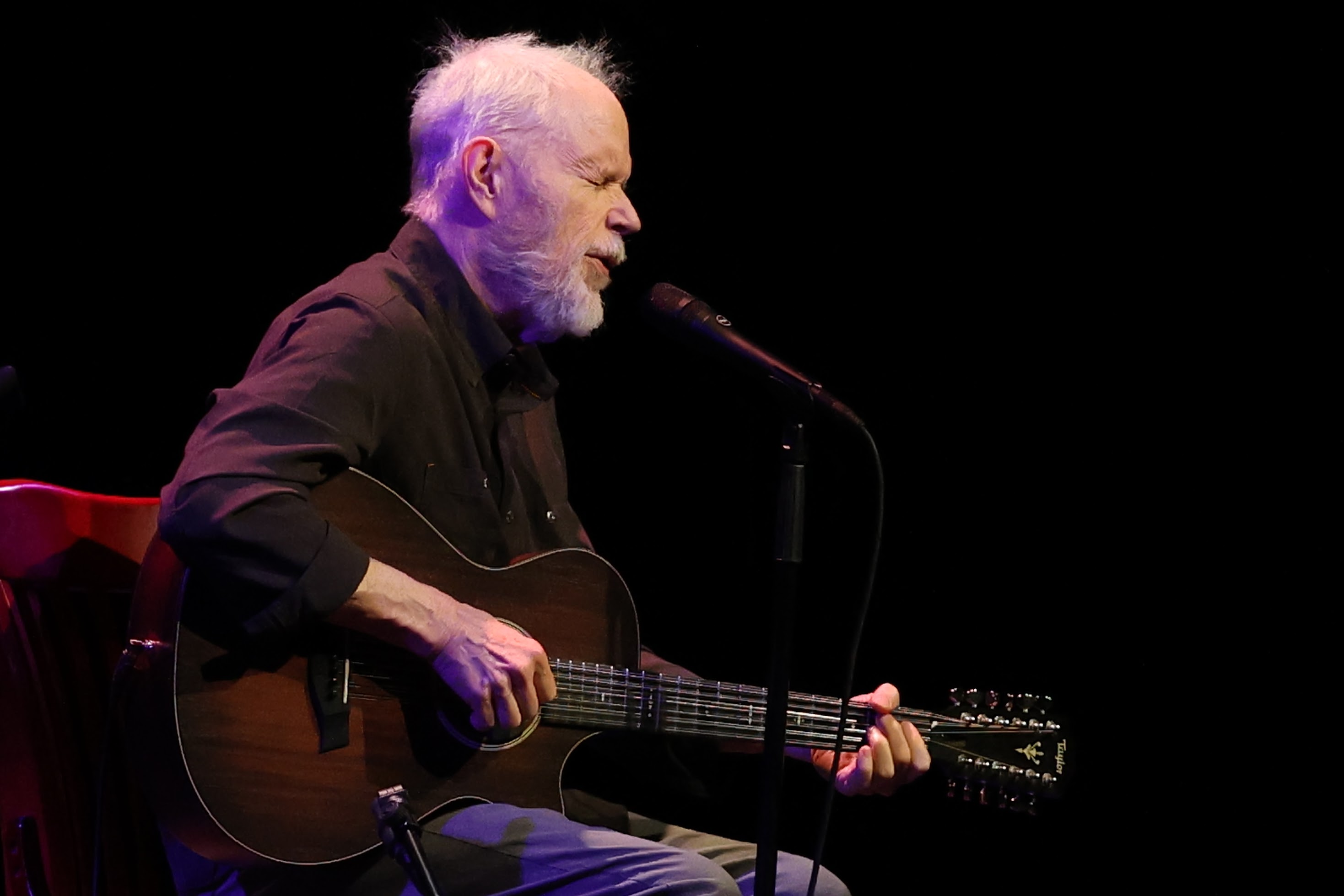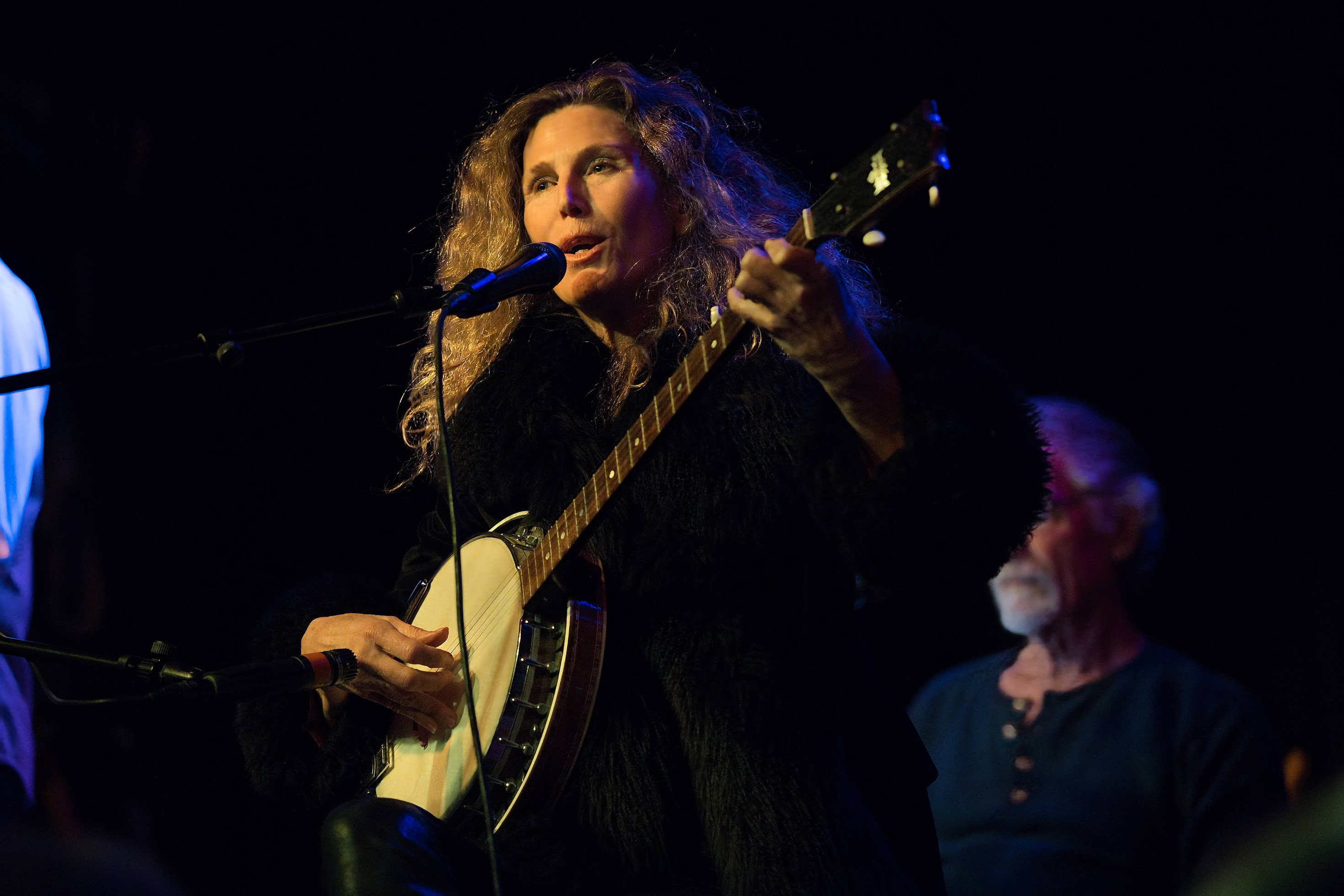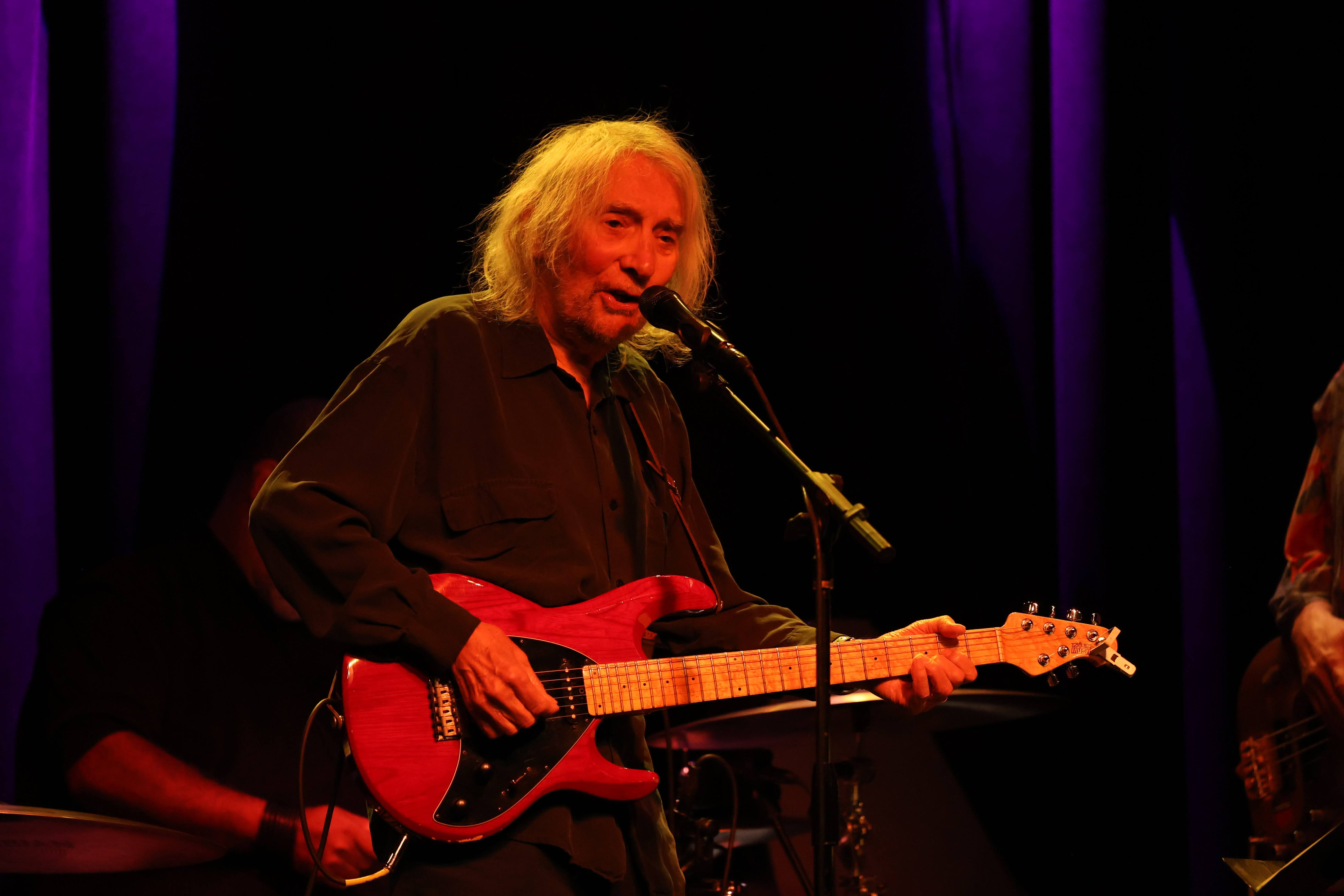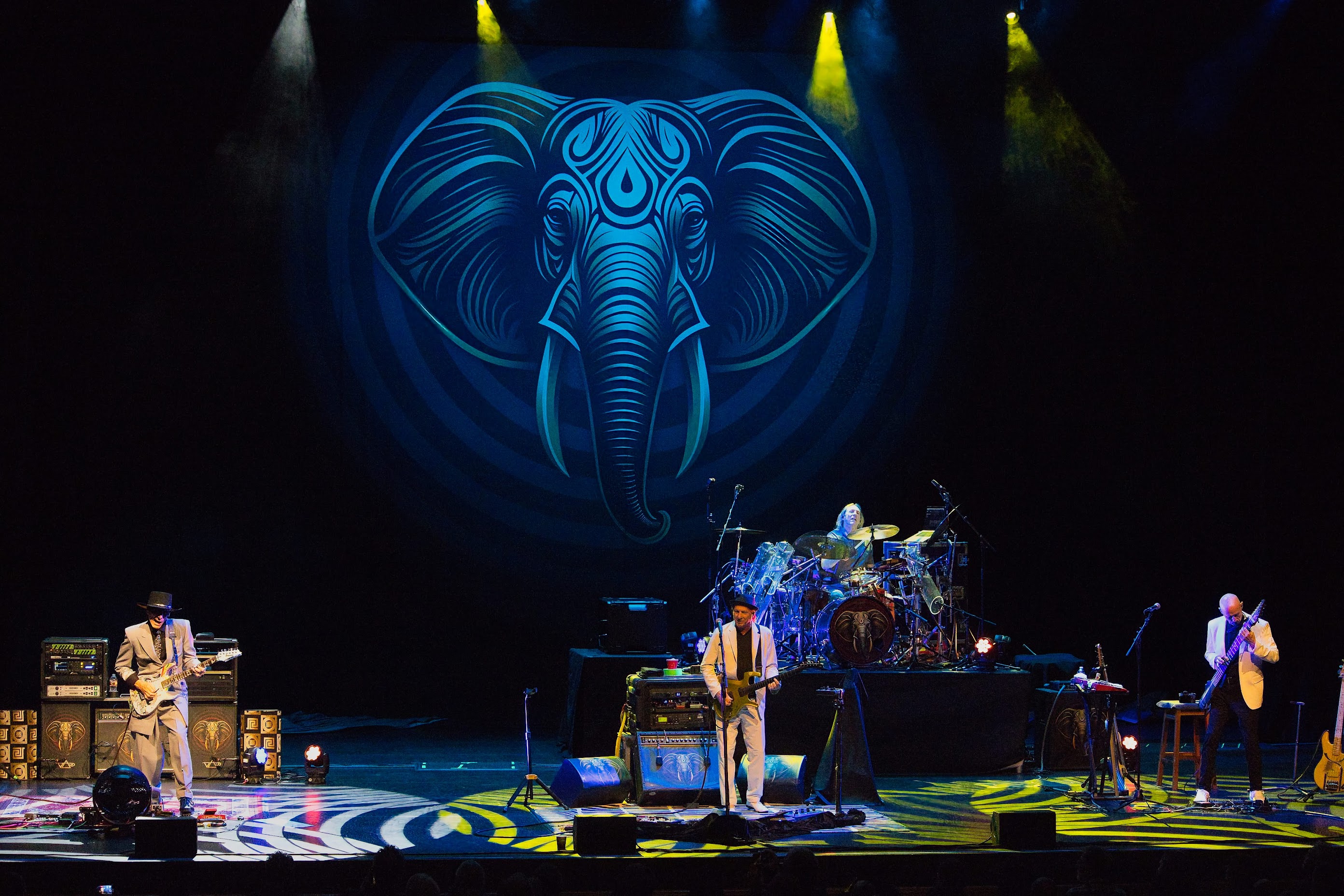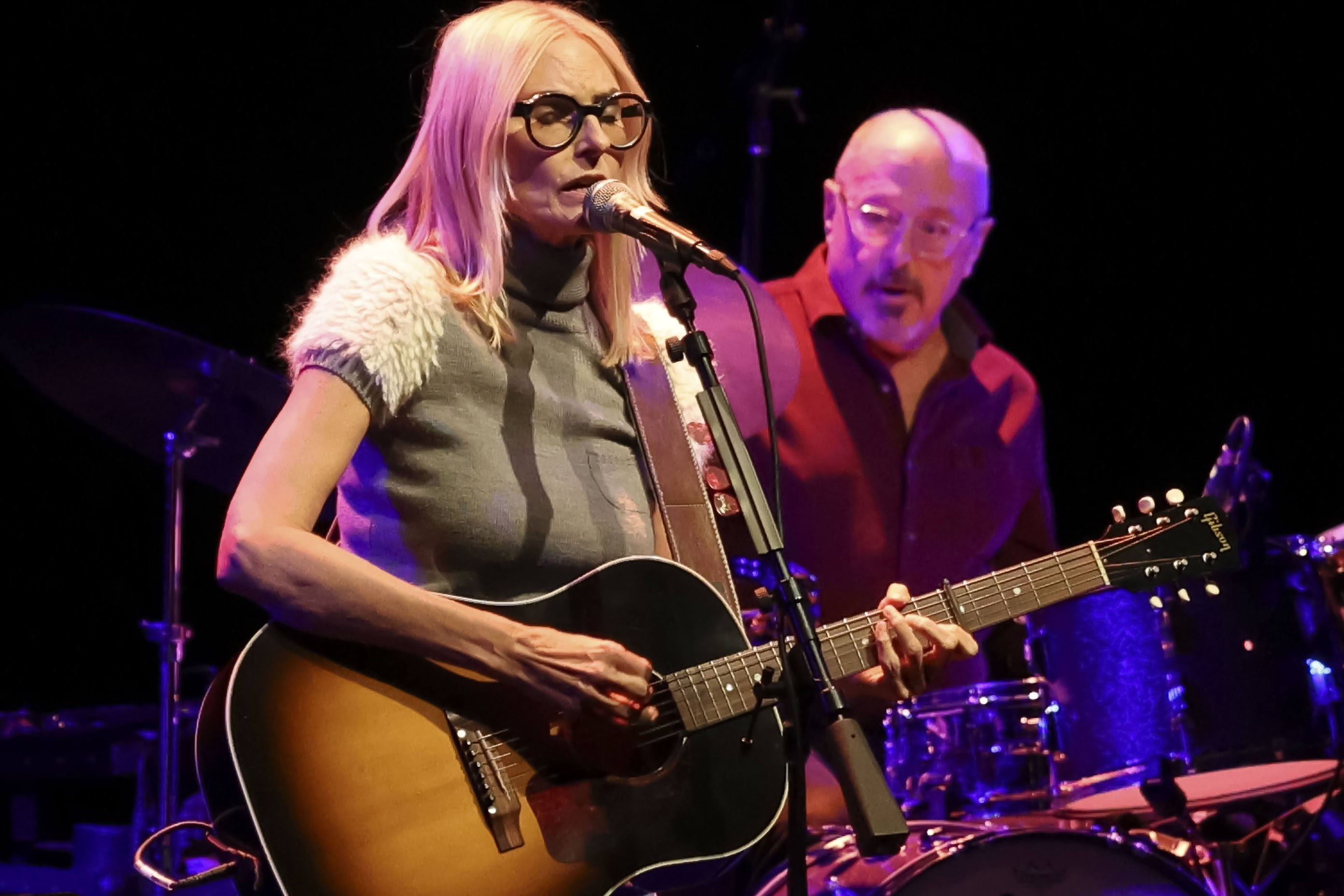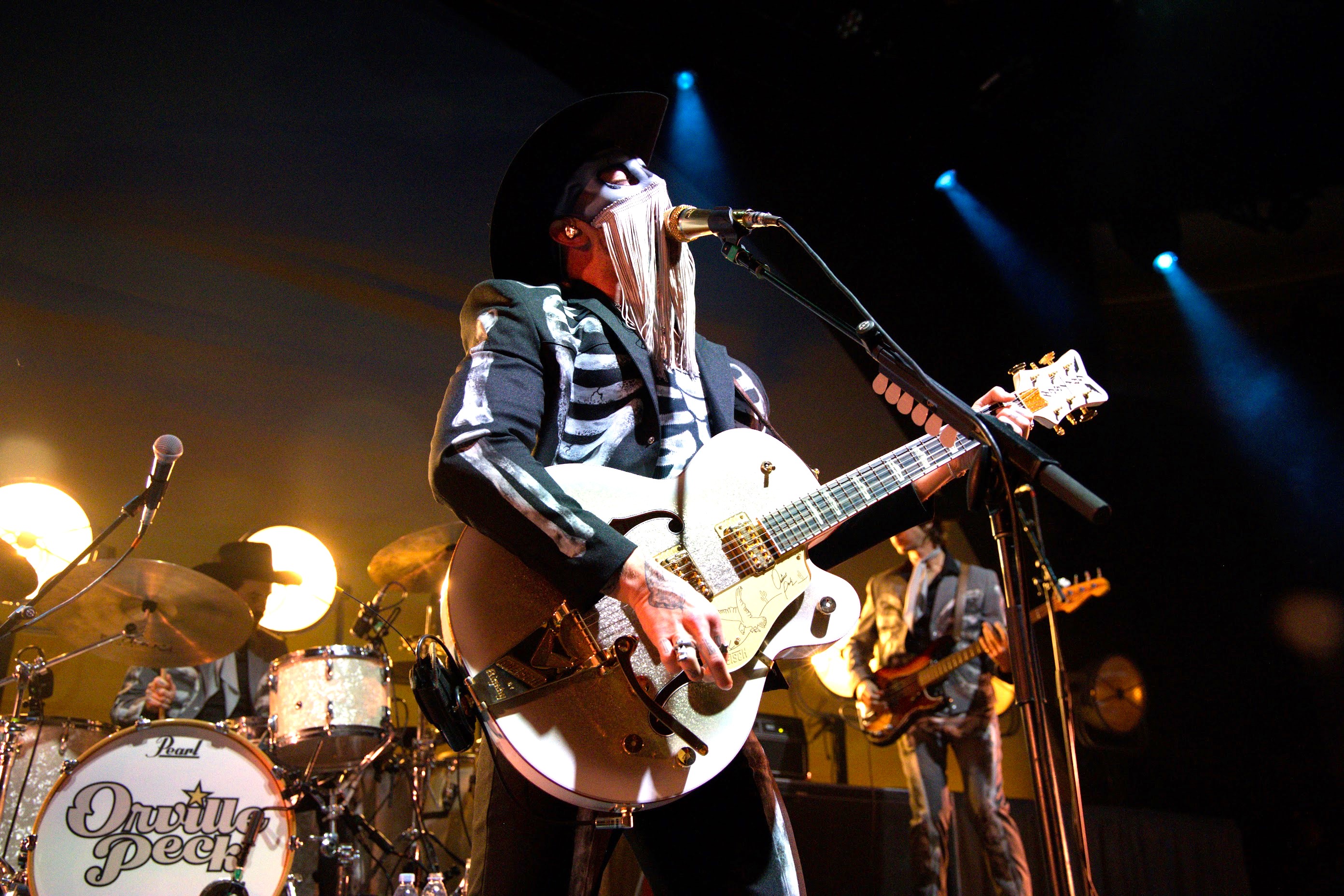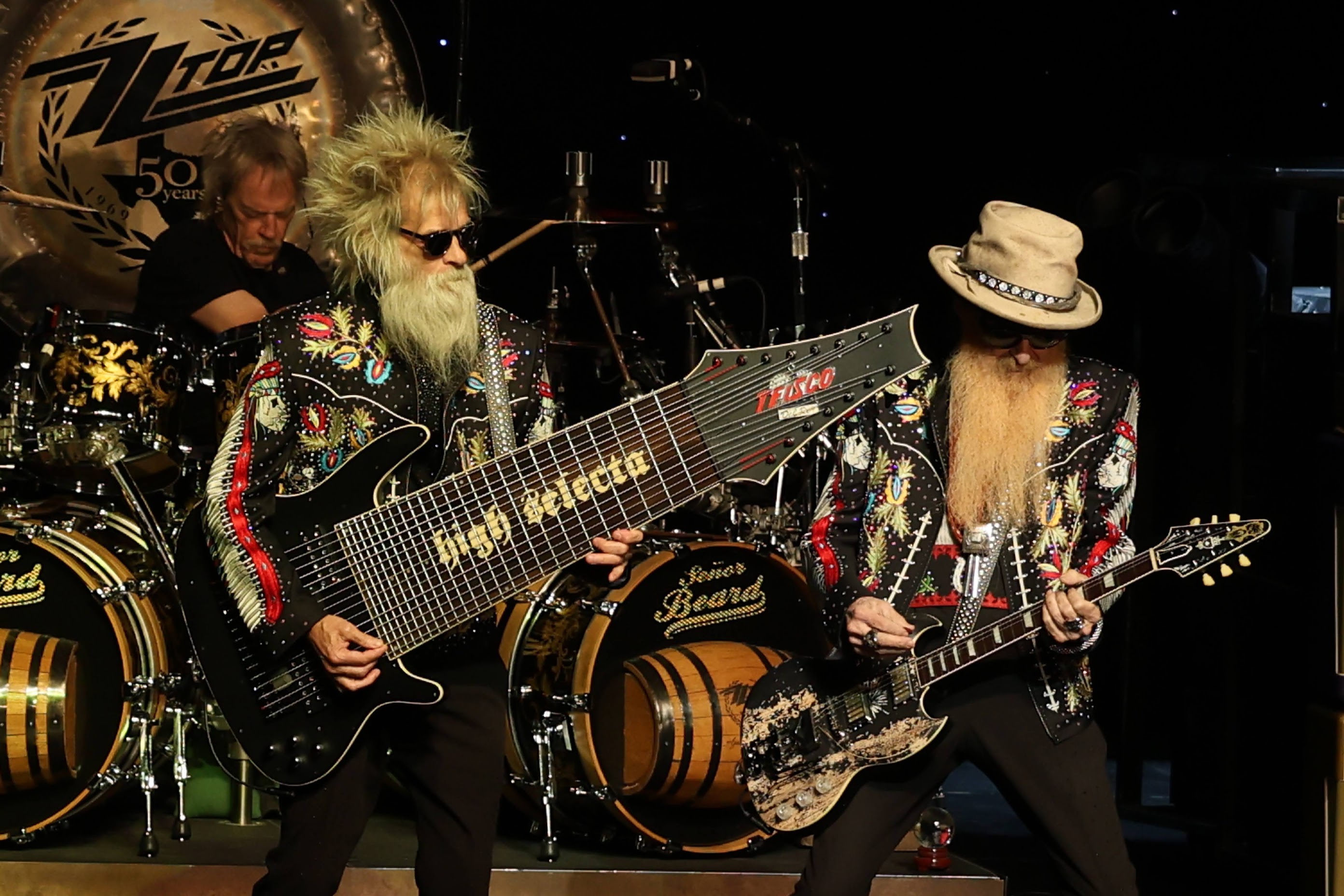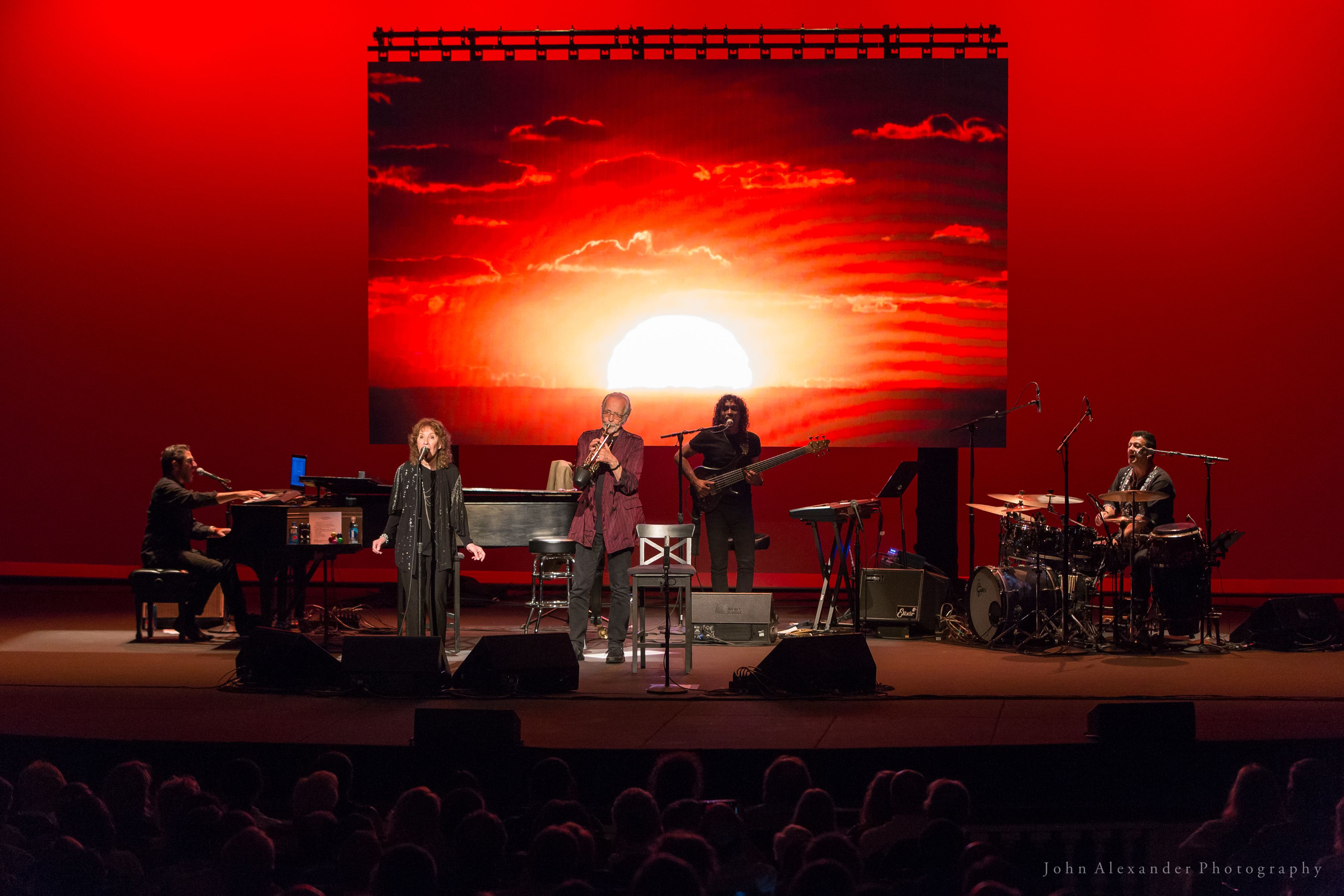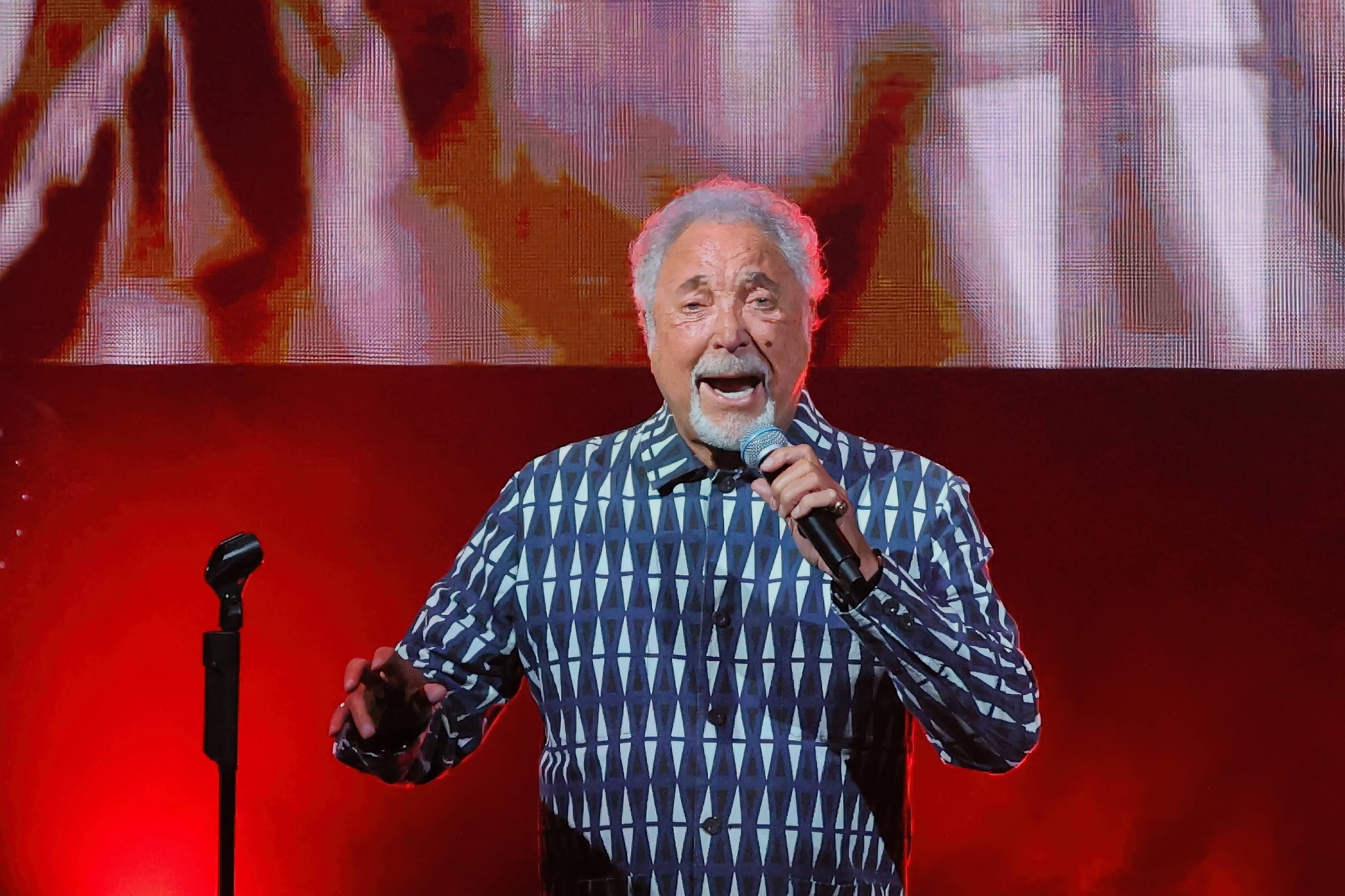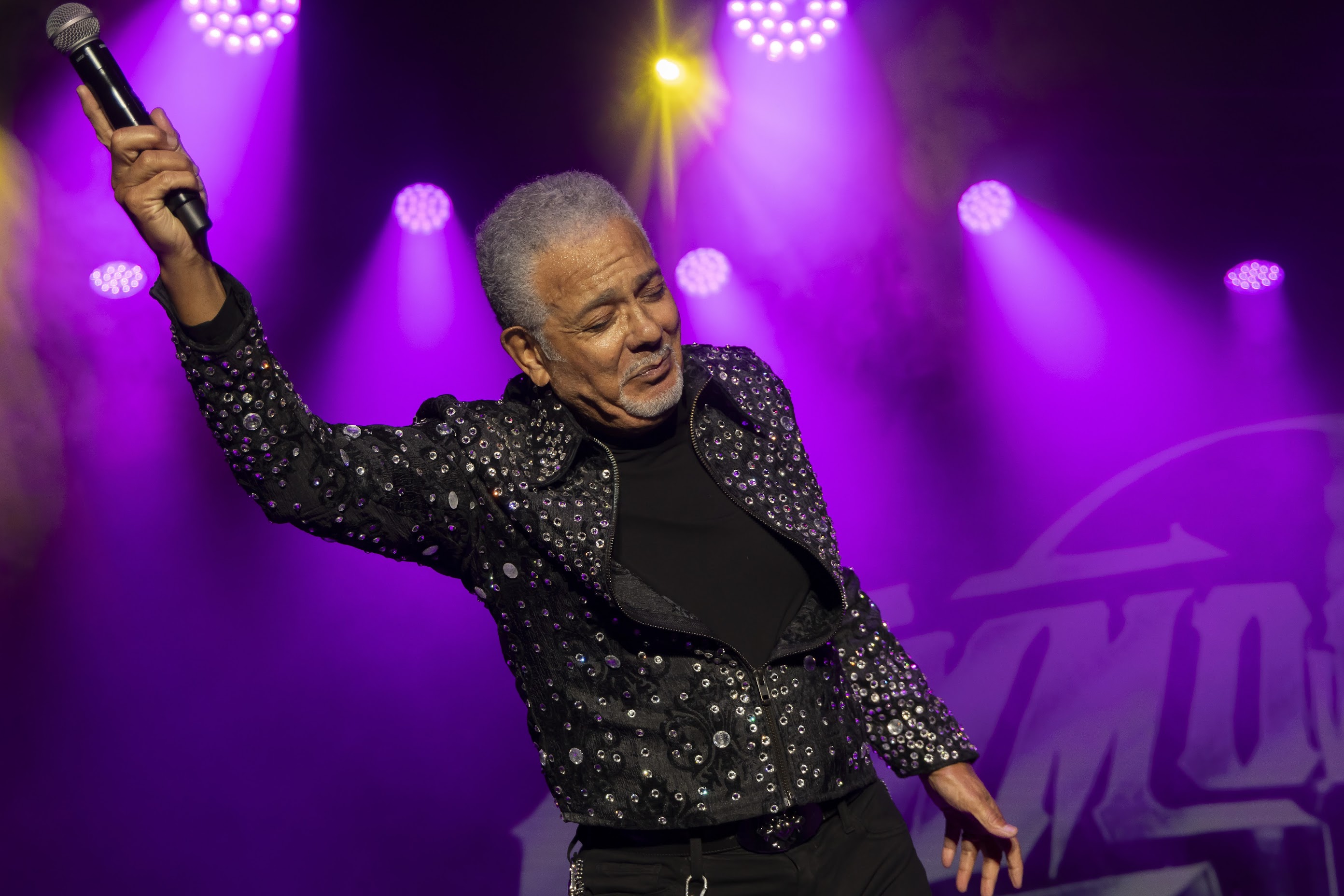On the third and final day of this year's Fest Forums in Santa Barbara a small army of celebrities turned up for the celebration. It was a full day of films, lectures, food, wine tasting, and great live music. The morning got off to a sleepy start as vendors began closing the exhibit hall and the early birds to the convention sipped coffee and ate fresh fruit and pastries.
There were only a few dozen attendees in their seats when the first lecture of the day started in mid-morning. But by the time the two elder statesman of music festivals finished their conversation entitled Glastonbury versus Woodstock, the meeting room was nearly full. Robert Richards, the commercial director for Glastonbury and iconic music festival promoter, Michael Lang, the co-founder of Woodstock engaged in a riveting conversation about the history of the two legendary festivals. The exchange was moderated by Elliot Lefko, the president of Golden Voice/AEG. The combined company is responsible for some of the most successful festivals n the country, including the prestigious Coachella festival. While Lang grew up in Brooklyn, Richards hailed from London. But when the young English boy was only 12 years old he flew across the pond to attend the original Woodstock concert in 1969. Lang was wavy enough to realize that making a documentary film of the event was important, which launched Woodstock into international notoriety. He had worked on a documentary the year before at the 1968 Miami pop music festival. Richards shared the history of Glastonbury 47 years ago, which started as a money-losing venture. But promoters were convinced that music festivals were a very British thing and that only they were the only ones that would put up with the rainy, muddy conditions that are most common in Great Britan. Richards quipped “The 40th anniversary of the festival in 2010 was the only year it didn’t rain, and fans hated it.” Apparently, it was a record-breaking heat wave, and festival fans preferred the rain and the mud. Lefko reminds the pair of promoters that both their festivals initially failed financially, as did the first Coachella fans. But they were such a hit with music fans they built a loyal base of followers, that eventually translated into profitable ventures. Lang also shared the news that there will be a 50th anniversary Woodstock festival in 2019. Richards shared many stories of Glastonbury including how the founder got T Rex to play the first festival at the last minute when The Kinks pulled out. The farm owner and would be music producer paid T Rex from the profits in the milk from the cows on the farm every two weeks until he had paid the performer back. Now the festival makes a profit of about 2 million pounds a year. Richards joked “yeah about two million dollars,” alluding to the dropping pound. All the profits are donated to Greenpeace and 750 local charities. Lang talked about how they had to set up a water purification system at Woodstock, and the lake level dropped about three feet.
One of the most popular lectures of the day featured a discussion on cannabis and its commercial incorporation into the festival world. One event offered wine and pot pairings to sample different flavors. But the closing keynote lecture was the one that filled the lecture hall with celebrities and convention-goers alike. Multi-talented musician and music producer T Bone Burnett was interviewed about his life’s accomplishments by the film impresarios, the Cohen brothers. As Jeff Bridges and other film and music stars looked on, the brothers coaxed anecdotes out of Burnett about his undertakings, including his collaborations with the Cohens. There was a discussion of how Burnett and the Cohens have not embraced the transition from analog to digital technology in their respective mediums. “Recorded music is a petrochemical process. Vinyl is the best medium and lasts the longest,” Burnett offered. The music master also shared some projects on his wish list including two historic American musical groups that have focused his attention of late. The first, The Fisk Jubilee Singers are an African-American a cappella singing group, consisting of students from Fisk University. The group was organized in 1871 to help raise funds for college for young former slaves and their children. Their early repertoire consisted mostly of traditional spirituals but also included some Stephen Foster songs. Burnett also mentioned that when the band toured England and played for the Queen in the 19th century, the Queen asked where the soulful singers had originated. When they told her they were from Nashville, she apparently gave the Tennessee town, the moniker Music City, which has endured. Burnett also revealed that he was inspired to pursue the work of “the father” of American music Stephen Foster. The songwriter who wrote over 200 songs, some of which are the most popular in American music, started a music school in Nashville in 1932. The school produced some of the most influential music writers in American music including Woody Guthrie.
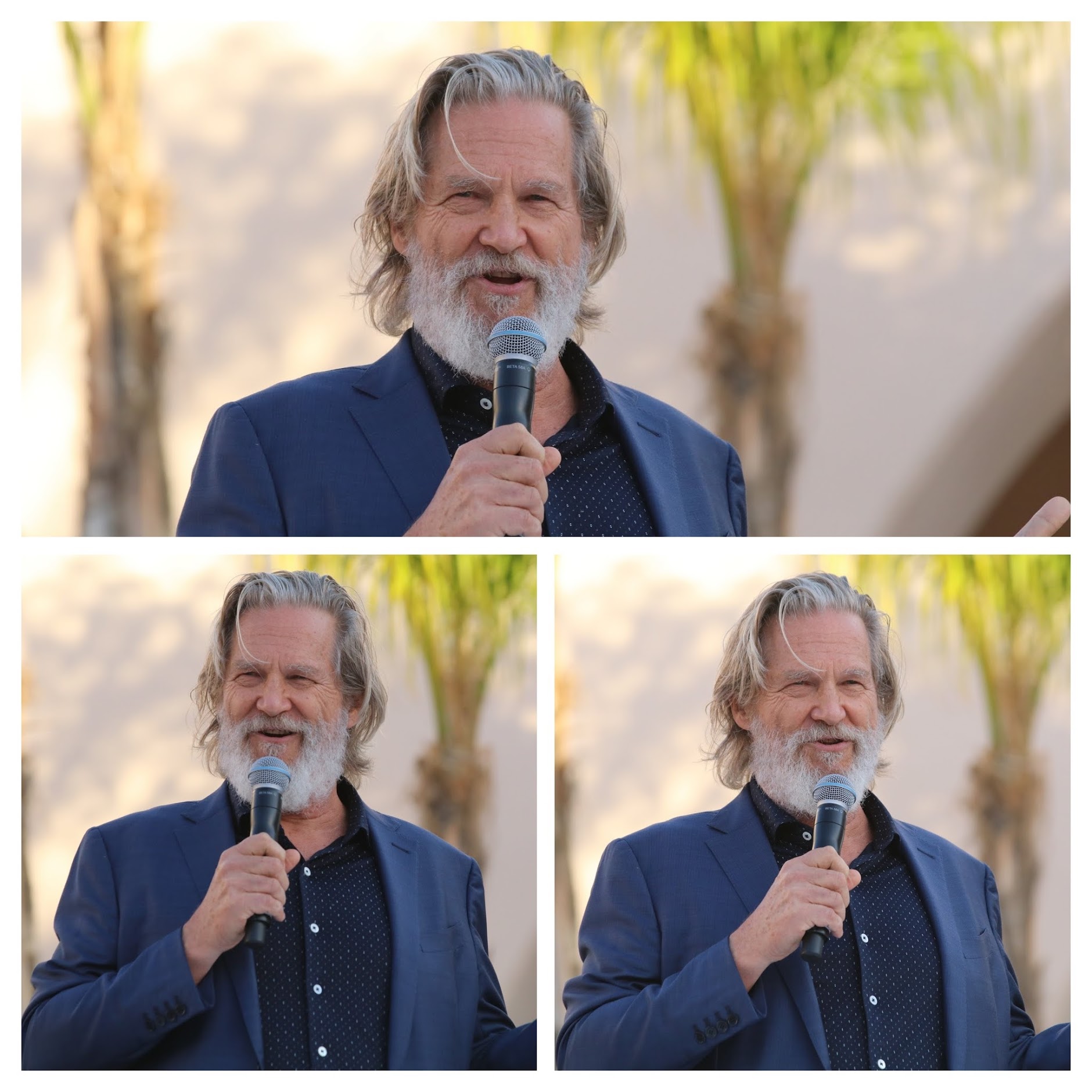
The convention ended on a high note with an awards ceremony outside in the hotel courtyard followed by a concert by local pop star Kenny Loggins and English singer Judith Owen. The festival awards honored winners in nine categories and included actress Frances Fisher, T Bone Burnett, Chuck Leavell and Kenny Loggins. Local actor and musician, Jeff Bridges was the presenter of some of the awards. Earlier, in the day director Susan Kucera showed a preview of her new film “Living in The Futures Past.” The beautifully filmed nature film and a documentary on the philosophy of energy consumption were narrated by Bridges. The academy award winning actor has engaged in a number of social causes and charities. He spoke at length about his shared passions when introducing the awards for Loggins and Burnett, both well known for their tireless work on behalf of multiple charity and fund-raising events. Both Loggins and Bridges are well known in the Santa Barbara area for their social work especially providing food banks for needy residents.
As a spectacular sunset painted the oceanfront courtyard in myriad colors, Kenny Loggins played a very special concert consisting of some of his biggest hit songs. Convention attendees sampled wines from across California while Loggins serenaded them. Tourists passing through the open courtyard were astounded to see the pop star playing for the intimate gathering and took copious selfies. Loggins told an endearing anecdote about his hit song, “House at Pooh Corner.” He had written the song, but Disney didn’t want his band at the time (Nitty Gritty Dirt Band) to record it as they had acquired the rights to the Winnie The Pooh story. I was going out on a date one night, and I mentioned the song to my girlfriend, "I'm bummed tonight because I thought I had my first song recorded, and it's not gonna happen. The Disney lawyers put the kibosh on it." She looked at him and said, "Disney lawyers? Let me talk to my daddy about that." I did not know that I was dating the daughter of the CEO of the Disney corporation Loggins shared gleefully.
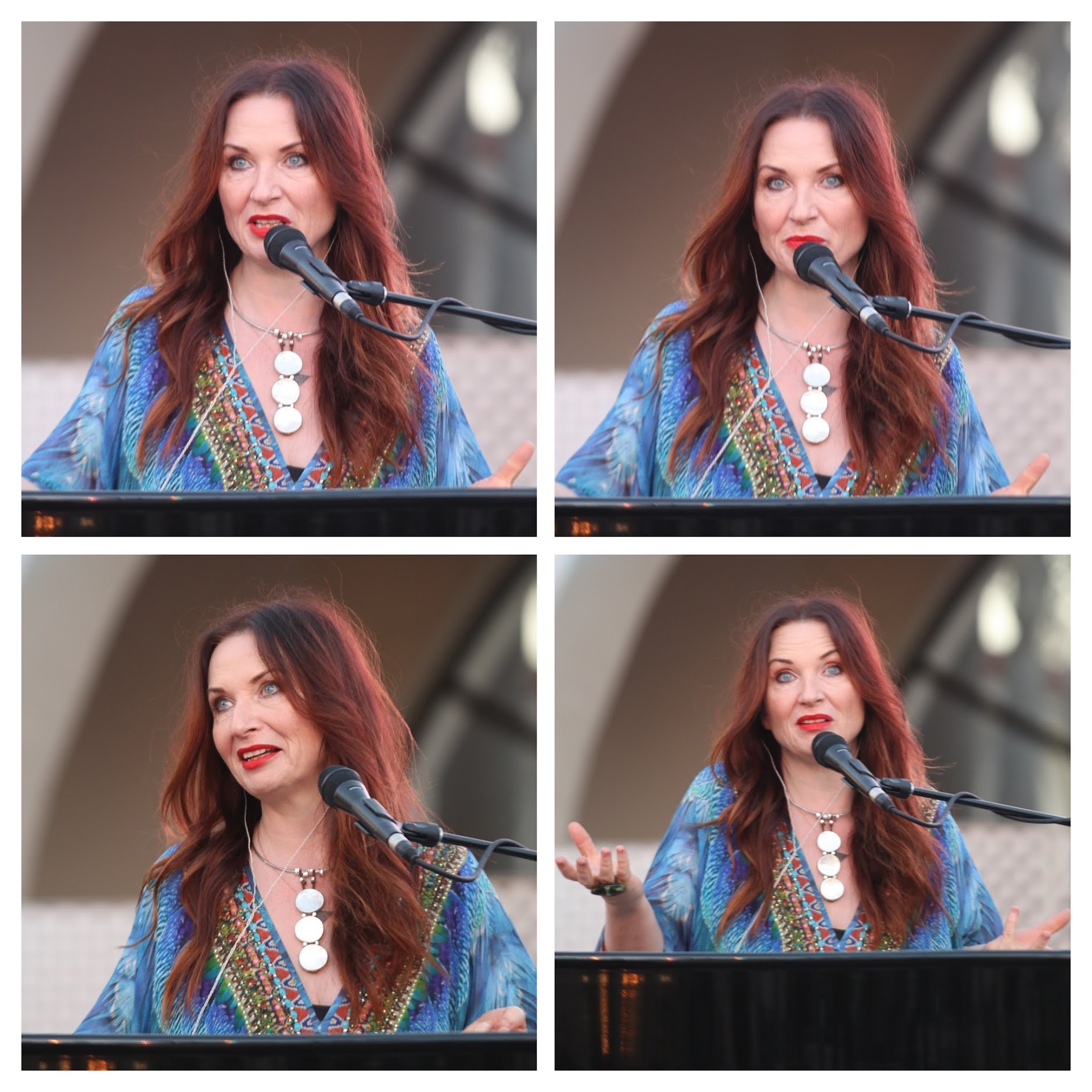
Welsh singer-songwriter Judith Owen, fresh off a tour opening for Brian Ferry, closed the convention with a haunting set of tunes, combining elements of jazz, pop and blues music. Now hailing from New Orleans, the influences of the Big Easy could be heard in her music. The singer-keyboardist was backed up by a talented percussionist and three-piece string section that gave an intriguing dimension to her performance.





